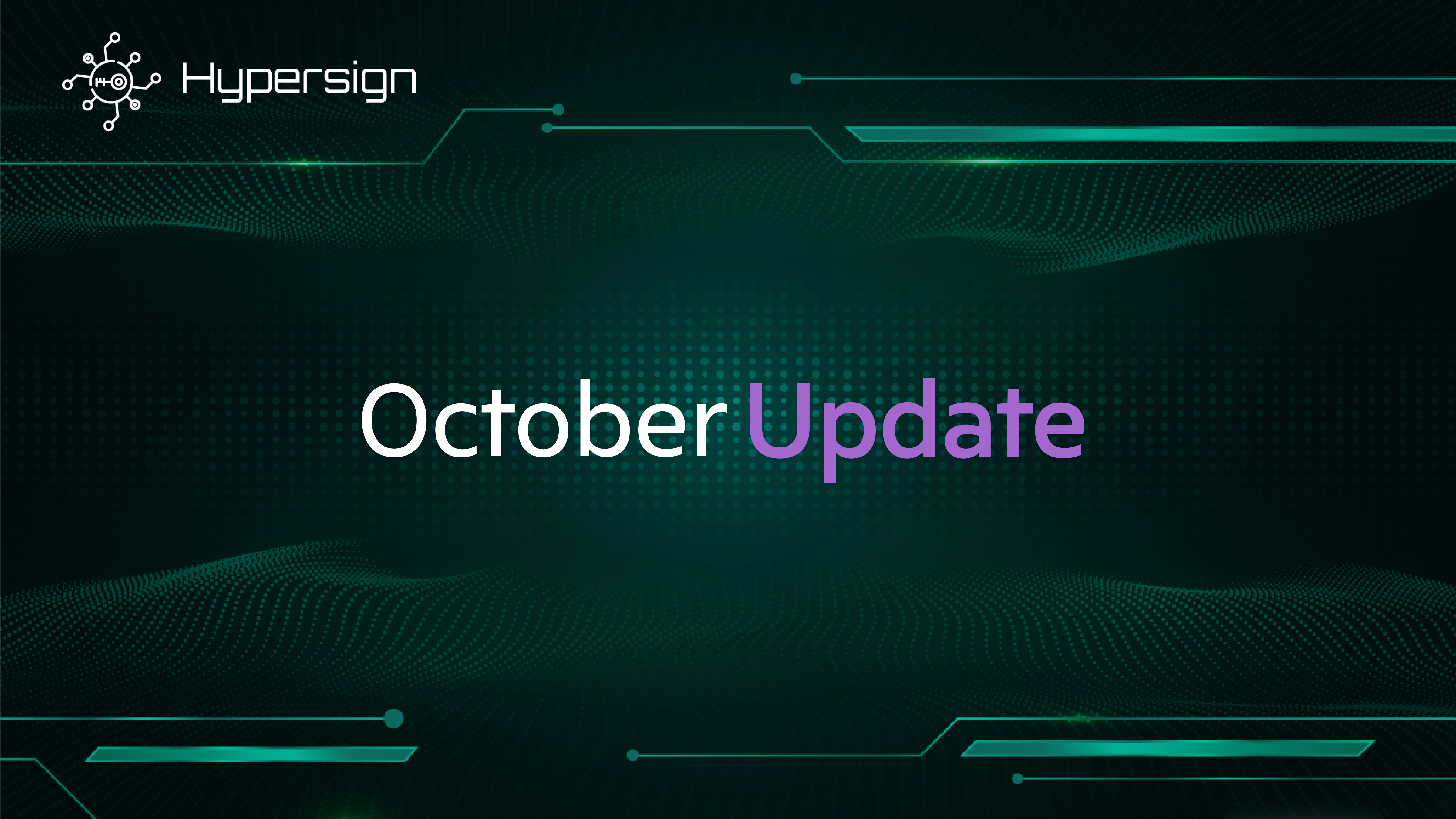TL;DR, Hypersign dedicated its efforts to codebase refinement, Protocol Buffer enhancements, the simplification of Credential Status, and the improvement of JSON-LD canonization. Hypersign played a pivotal role in Legal Drinking Age verification at MotoGP Bharat, discussed privacy-preserving identity verification use cases, and signed a significant MOU with MIT ADT University, focusing on network node establishment and the development of certificate/ID card management tools.
October was a busy and productive month for Hypersign, marked by significant technical updates, exciting partnerships, and insightful discussions. In this article, we'll take a closer look at the key activities and achievements of Hypersign during October.
Before we dive into the updates, there is a pressing issue that needs attention but seems to be ignored. If you keep up to date with news from India, there are cases of leak of customer PII (Personal Identifiable Information) from companies time and again and there are no solid actions taken to prevent it from happening. On 30th Oct, one such news came out where Personal Identifiable Information of 81.5 crore Indian citizens on the dark web, which the hackers were ready to sell for just $80,000. The data seems to have leaked from the Indian Council of Medical Research database; we wrote an article about the issue and how it can be prevented. Please share this article if you feel this issue needs public attention.
Technical Updates:
Codebase Refactoring: Most of October was dedicated to refactoring the Hypersign Identity Network's codebase. This effort aimed to enhance the system's performance and maintainability.
Protocol Buffers Refinements: Based on internal developer feedback, Protocol Buffers definitions were revamped. Some RPC message names were also renamed to ensure a more structured codebase.
Credential Status Document Enhancement: The structure of the Credential Status Document changed. Instead of maintaining four statuses, it now has two: "Live" and "Revoked." This streamlining simplifies the process and enhances efficiency.
JSON-LD Canonization Improvement: The JSON-LD canonization process was improved by canonizing both the unsigned document and the document proof.
As a fun side project, Hypersign developers created a portal for creating verified and easy-to-share digital business cards for free. This tool adds convenience to networking and identity verification. You can create your own digital business card by checking the tweet here:
General Updates:
MOU with MIT ADT University: In the last week of October, Hypersign signed a Memorandum of Understanding (MOU) with MIT ADT University. The collaboration aims to establish a network node on campus and work on certificate and ID card issuance and management tools. This partnership holds the promise of innovative solutions for identity and credential management.
MotoGP Bharat Experience: On October 6, Hypersign released an article detailing its experience at MotoGP Bharat. Hypersign was responsible for Legal Drinking Age verification for all alcohol sales at the event in partnership with AtomX. The article also discussed use cases for identity verification where Hypersign can assist businesses in verifying users in a privacy-preserving manner.
X Spaces Event: On October 13, Vikram Bhushan, Co-Founder of Hypersign, participated in a spaces event along with representatives from Secret Network and Fair Block. They engaged in an informative discussion on "SocialFi Vs Privacy." If you missed the event, you can catch up on it here.
Foundership Community Discussion: On October 27, Vikram Bhushan joined the Foundership community to discuss scaling for protocols and the role of Layer 2 solutions. This insightful discussion provided valuable insights into the ever-evolving blockchain landscape.
About Hypersign
Hypersign is an innovative, permissionless blockchain network that manages digital identity and access rights. Rooted in the principles of Self-Sovereign Identity (SSI), Hypersign empowers individuals to take control of their data and access on the internet. It provides a scalable, interoperable, and secure verifiable data registry (VDR) that enables various use cases based on SSI. Built using the Cosmos-SDK, the Hypersign Identity Network is recognized by W3C (World Wide Web Consortium), promoting a seamless and secure identity management experience on the Internet.
Get in touch with us today to understand the nuances of the decentralized identifier and their real-world application at meet.hypersign@gmail.com



















